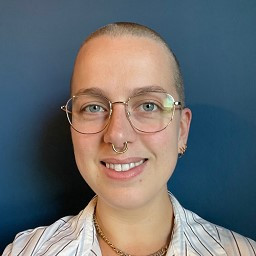Package summary
Start Date
End Date
Booking closes
Notes
Courses in package
Neuro-Affirming Support for Autistic People: Some Basic Principles
Event summary
Date
Start Time
End Time
Webinar Online,
Booking closes
Parents, care providers, and service users in the autistic care and support space are increasingly interested in “neurodivergent-friendly”, “neurodiversity-informed”, or “neuro-affirming” care.
But what does this mean?
What does neuro-affirming care and support look like?
And how do we integrate the principles of neurodiversity with providing supports or interventions for autistic people?
In this talk, we’ll cover
1) What the neurodiversity paradigm is,
2) Why it’s so important to consider neurodiversity in the context of providing care and support to autistic (and, more broadly, all neurodivergent) people,
3) What neuro-affirming care and support provision actually means, and what it looks like.
Notes
Location
Webinar Online
Get Directions
Holly E.a. Sutherland
Bluesky & twitter: @heasutherland.com Website: heasutherland.com
Neuro-Affirming Support for Autistic People with High Support Needs: What’s Different
Event summary
Date
Start Time
End Time
Webinar Online,
Booking closes
When we hear about neurodiversity, or about neuro-affirming support, it’s often in the context of autistic people with lower support needs. These are autistic people who may need some support, often related accessing education or employment, but who are generally capable of self-advocating – of understanding their own needs and asking for help with them. However, this group of autistic people is only part of the autistic population.
Some autistic people, those with higher support needs, may not be able to do these things. What does neuro-affirming care and support look like for these people, in this context?
Building on last week’s talk, we’ll be discussing neuro-affirming practice again, but for autistic people with high support needs this time.
We’ll cover
1. Why neuro-affirming support is still important for this group of autistic people,
2. How some of our basic principles of neuro-affirming support might need to be altered for this specific context, and
3. Some tips and hints as to how you can start applying neuro-affirming principles in your work with autistic people with high support needs.
Notes
Location
Webinar Online
Get Directions
Holly E.a. Sutherland
Bluesky & twitter: @heasutherland.com Website: heasutherland.com
Neuroaffirmative Practice and What This Means, When Considering Mental Health and Wellbeing
Event summary
Date
Start Time
End Time
Webinar Online,
Booking closes
This webinar, “Neuroaffirmative Practice and What This Means, When Considering Mental Health and Wellbeing,” will begin by briefly covering what neuroaffirming practice actually is and how we can all make changes in our practices to make the leap forward.
We will discuss how this relates to mental health and well-being, and the enormous and vital benefits that it can bring for neurodivergent people.
Topics will include masking and its links to poor mental health, quality of life and how quality of life measures, and other mental health measures, need to be re-examined through a neurodivergent lens of a what good life actually entails, the many barriers to mental health care for neurodivergent people and how we can start to address these.
Notes
Location
Webinar Online
Get Directions
Davida Hartman
She founded and is Clinical Director at The Adult Autism Practice (www.adultautism.ie), a fully online service that covers the UK and Ireland, with a vision of providing respectful, neurodiversity affirmative, autism identification (assessment) work within a team that is shaped by the Autistic voice and experience. She is also co-founder, Clinical Director and Principal Psychologist at The Children’s Clinic, Dublin (www.thechildrensclinic.ie) run on these same principals. Prior to this, Davida worked for many years within the Irish public health service, in teams supporting Autistic and otherwise neurodivergent children.
Davida has written several books with Jessica Kingsley Publishers, including being lead author on the first ever book on adult autism assessment "The Adult Autism Assessment Handbook: A Neurodiversity Affirmative Approach." In 2025, "The Neurodiversity Affirmative Child Autism Assessment Handbook" will be released.
Davida has also brought to Ireland the not-for-profit Gig Buddies (www.gigbuddiesireland.ie), where she is a Board Director. Gig Buddies aims to reduce loneliness and increase social participation for adults with a learning disability who may or may not also be Autistic.
Davida is late identified ADHD and part of a multiply neurodivergent family. She is a passionate ally of the Autistic community.
